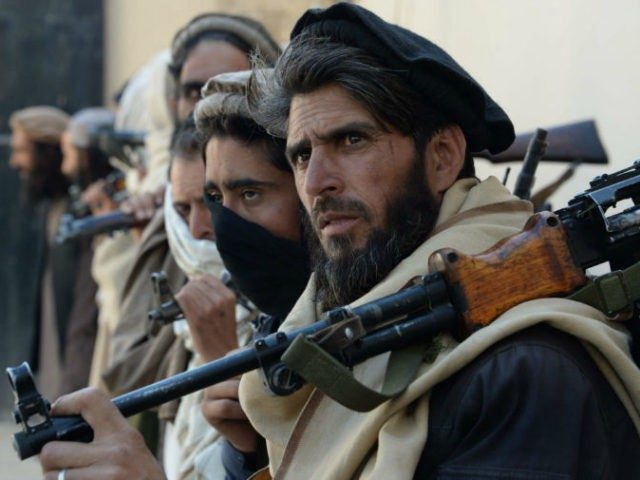U.S.-backed Afghan President Ashraf Ghani this week again offered the Taliban the opportunity to participate in presidential elections if they agree to peace talks with Kabul.
The jihadis maintain they will only talk to the Ghani administration after the complete withdrawal of foreign forces from Afghanistan.
A spokesman for Abdullah Abdullah, the Chief Executive Officer of Afghanistan who shares power with Ghani, stressed, “The doors are open whenever they want to come to discuss with an Afghan government and take part in the democratic and national stage,” Asia News reported Friday.
Kabul’s offer is consistent with U.S. President Donald Trump’s strategy to end the war. The plan is primarily focused on achieving “political reconciliation” between the Afghan government and the Taliban, conceding that a military victory is impossible at this point.
Trump administration officials have come out in support of a similar unconditional offer made by the Ghani administration: a ceasefire, legitimacy as a political group, and another invitation to participate in the upcoming elections.
Afghanistan delayed the presidential elections twice, from July 20 to April 20, and finally to September 28, citing security and other issues. There are 18 all men candidates running, including Ghani.
Political legitimacy could allow the same Taliban regime to return to power after U.S. troops deployed to Afghanistan in October 2001 removed it from power later that year. Nevertheless, the Taliban has rejected the offers despite meeting with the United States eight times in nearly a year.
The Trump administration maintains that an agreement is dependent upon a truce and direct negations between the Afghan government and the Taliban. So far, the Taliban has refused to engage in direct talks with Kabul, dismissing the Afghan government as an American puppet. The Taliban has long claimed it will only negotiate with Kabul after the full withdrawal of all foreign forces.
Terrorists from the group have escalated deadly attacks during the negotiations.
Kabul’s recent offer to the Taliban came a few months after Ghani rejected the prospect of forming an interim government to incorporate the Taliban into the Afghan political system.
The Taliban is fighting to establish a sharia-compliant emirate. Ghani says he is advocating for a “long-lasting peace only through a democratic system.”
According to the latest U.S. government assessment from the end of January, the Taliban narco-jihadis now control or contest about half of Afghanistan, where nearly 35 percent of the population lives. Their power and influence have reached unprecedented levels. They are far stronger than during any other time since U.S. forces removed them in 2001.
A nationwide survey conducted in Afghanistan in 2018 by the Asia Foundation shows disdain against the Taliban among the Afghan public. More than 80 percent of Afghan reported “no sympathy at all” with the armed group.
Currently, U.S. and Taliban negotiators are trying to hash out the details of a draft pact.
The two sides agreed on the withdrawal of foreign forces in exchange for Taliban guarantees that it will not allow international terrorist groups to operate in Afghanistan.
However, the United Nations reported earlier this year that the Taliban remains close with al-Qaeda despite Pentagon claims to the contrary. President Trump has indicated he is considering leaving behind a residual U.S. presence to ensure the Taliban keeps its promises, a proposal opposed by the terrorist group.
The U.S. expects Pakistan to use its influence over the Taliban to facilitate an agreement.

COMMENTS
Please let us know if you're having issues with commenting.